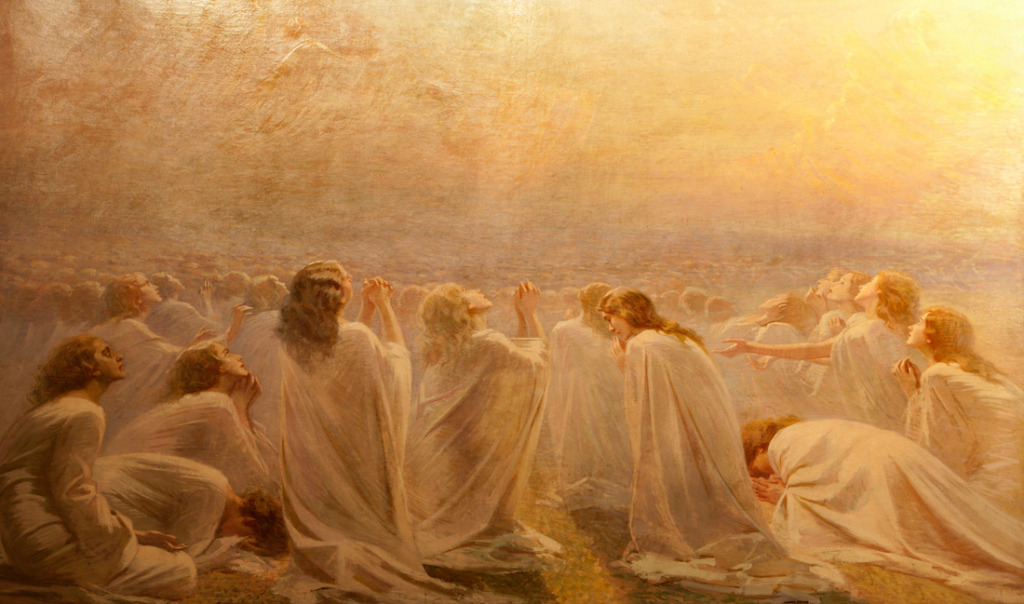Question:
What is the Catholic view on whether there is an actual, literal hell? A lot of people, including some who are Catholics, while they believe in an actual, literal heaven, say that hell is simply death. (Indiana)
Answer:
Catholic theology holds that there is an actual, literal hell.
The Catechism of the Catholic Church states: “The teaching of the Church affirms the existence of hell and its eternity. Immediately after death the souls of those who die in a state of mortal sin descend into hell, where they suffer the punishments of hell, ‘eternal fire’” (No. 1035). That same section goes on to explain that “the chief punishment of hell is eternal separation from God.”
The teaching from the catechism is based on a host of scriptural passages: In Matthew 25:41- 46, for example, at the judgment, Jesus says to the accursed, “Depart from me … into the eternal fire prepared for the devil and his angels,” and in Mark 9:48, Jesus describes hell as a place where the “worm does not die and the fire is not quenched.”
Some of the blessed have had visions of hell; St. Faustina Kowalska described it as “a place of great torture” where there is a “perpetual remorse of conscience” and a “fire that will penetrate the soul without destroying it … a terrible suffering since it is a purely spiritual fire, lit by God’s anger.”
We don’t know the exact nature of that eternal punishment. Are the “flames of fire” to be taken physically, as we on Earth know fire?
I’m not sure; it’s possible that the inspired authors simply used the most painful things they could imagine to describe what is ultimately indescribable — the absence of God and the presence of eternal torment.
Question:
I live in an area where there are many other Christian churches. When I attend funerals of friends who belonged to these churches, those funerals are called “Celebrations of Life.”
I understand that these denominations do not believe in purgatory and say that the person “has gone to be with the Lord.” So my question is this: Are Catholics the only ones who go to purgatory, while the others go straight to heaven? (Oneonta, NY)
Answer:
To answer your question directly — no, I don’t believe that only Catholics go to purgatory. Purgatory is the name we give to the final purification of the elect to make them ready for the glory of God’s presence. I suspect that a lot of us will need that last cleansing, and not just Catholics.
That belief of the Church is reflected in the Catechism of the Catholic Church, which says: “All who die in God’s grace and friendship, but still imperfectly purified, are indeed assured of their eternal salvation; but after death they undergo purification, so as to achieve the holiness necessary to enter the joy of heaven. The Church gives the name purgatory to this final purification of the elect” (No. 1030-31).
The Church’s belief is based on a number of scriptural passages, going all the way back to the Old Testament. In the Second Book of Maccabees (12:46) we read that Judas Maccabeus “made atonement for the dead,” that they might be freed from sin — which suggests a Jewish practice of offering prayers to cleanse the souls of the departed.
In the New Testament, Matthew’s Gospel (12:32) has Jesus saying that certain sins “will not be forgiven, either in this age or in the age to come,” an indication that some purging of the soul may need to occur following a person’s death.
Question:
My dad told me about a new member of his parish who bows to the priest as the priest is processing out at the end of Mass. My dad thinks that this is horrible and borders on worshipping the priest.
I could see it, though, as not being so offensive in some contexts or cultures, especially if we believe that the priest is acting “in persona Christi” (in the person of Christ). Could you help give me some insight? (Gate City)
Answer:
Although not prescribed in any of the Church’s liturgical directives, I see no harm with a member of the congregation’s bowing to the priest as the priest exits following Mass.
I would interpret it as you do — as simply a sign of courtesy and respect and also, I would think, of gratitude for the blessings of the Mass. As a priest for more than 50 years, it has never occurred to me that parishioners were “worshipping” me when they have bowed in my direction.

